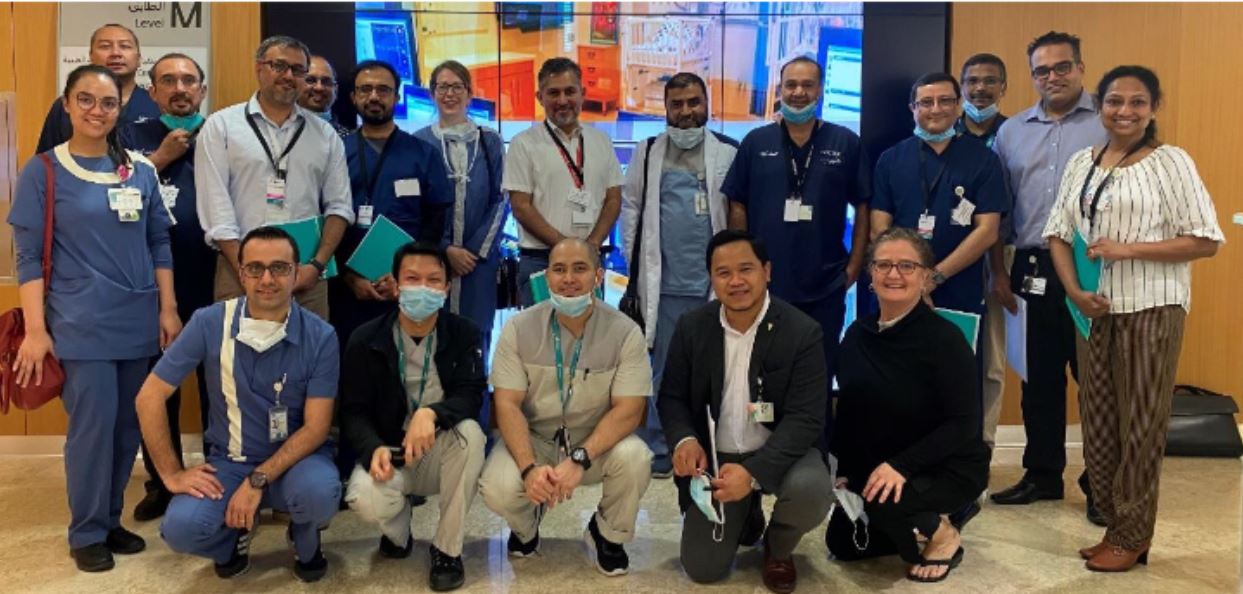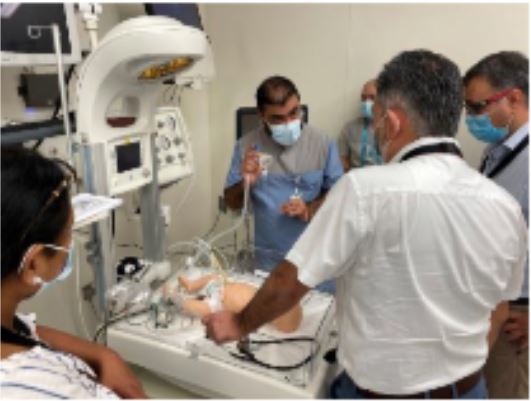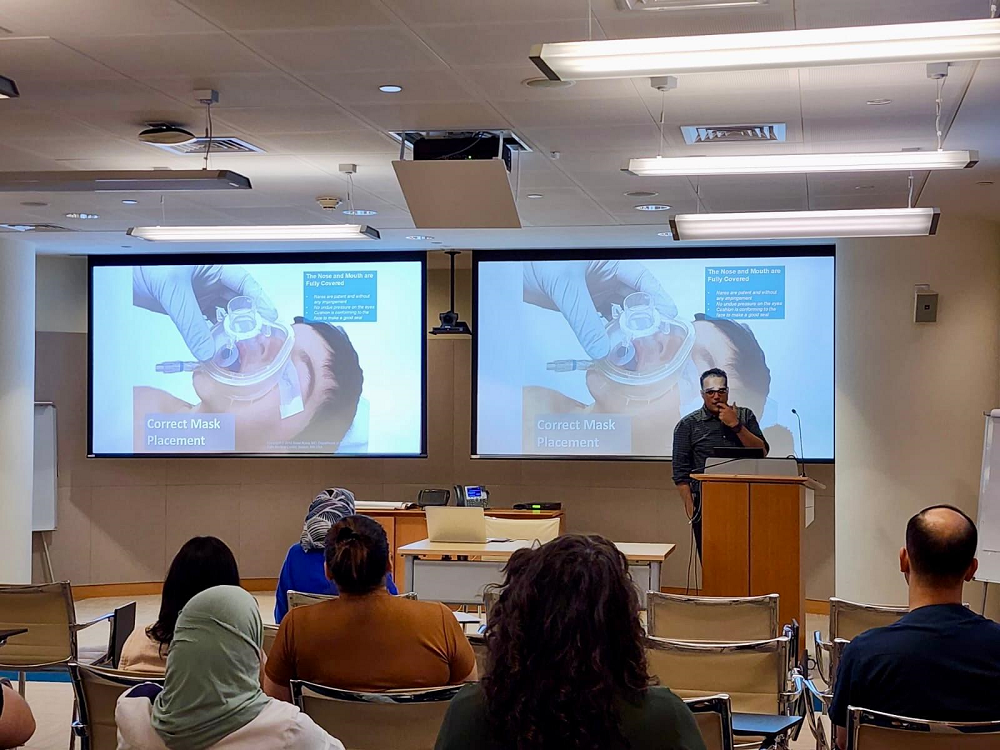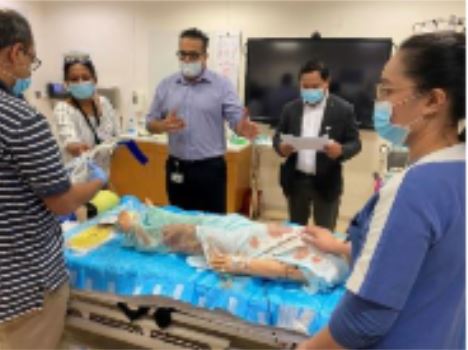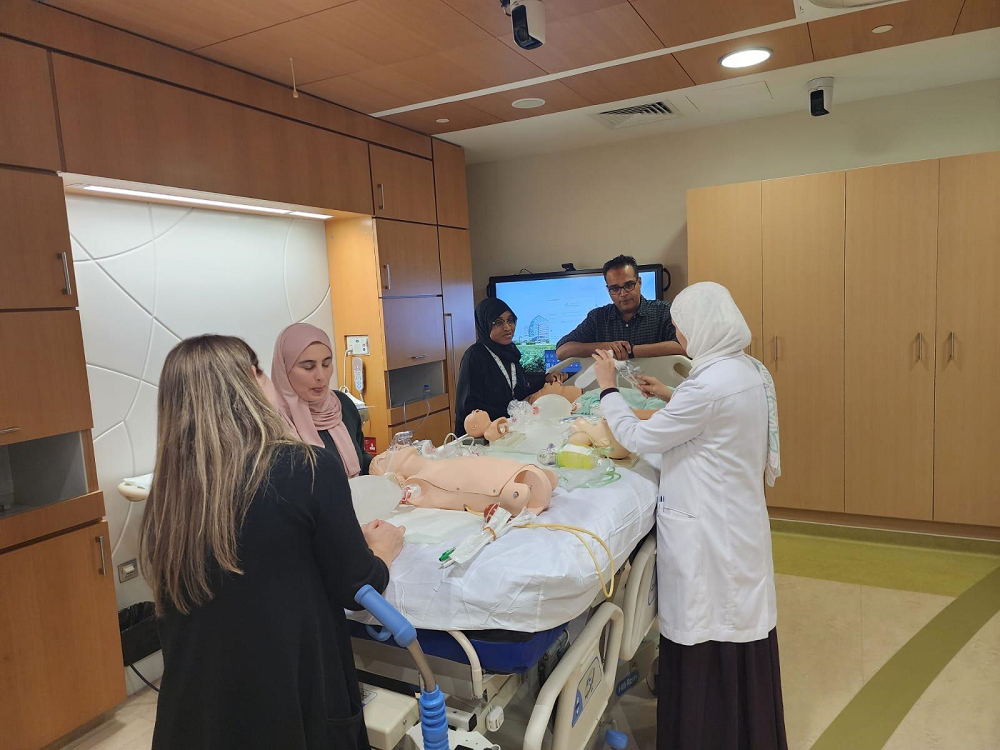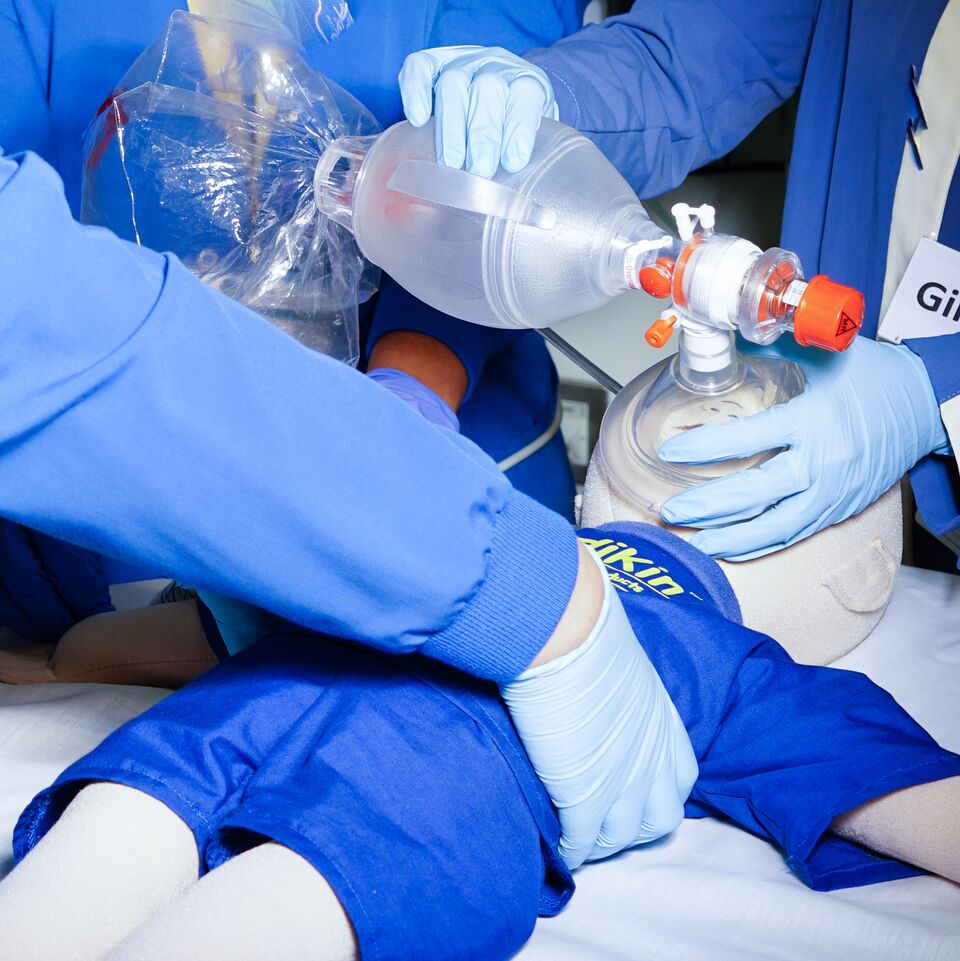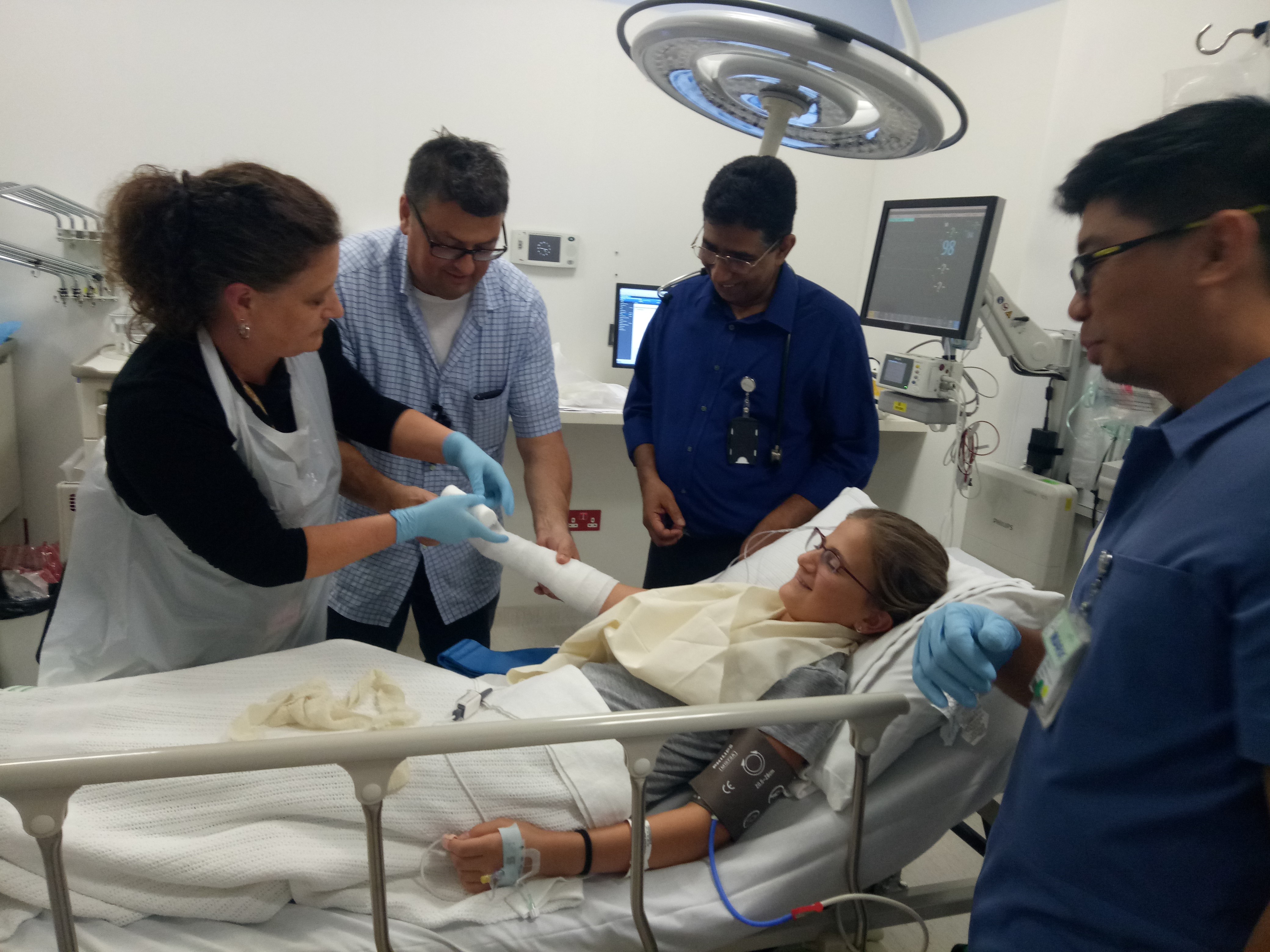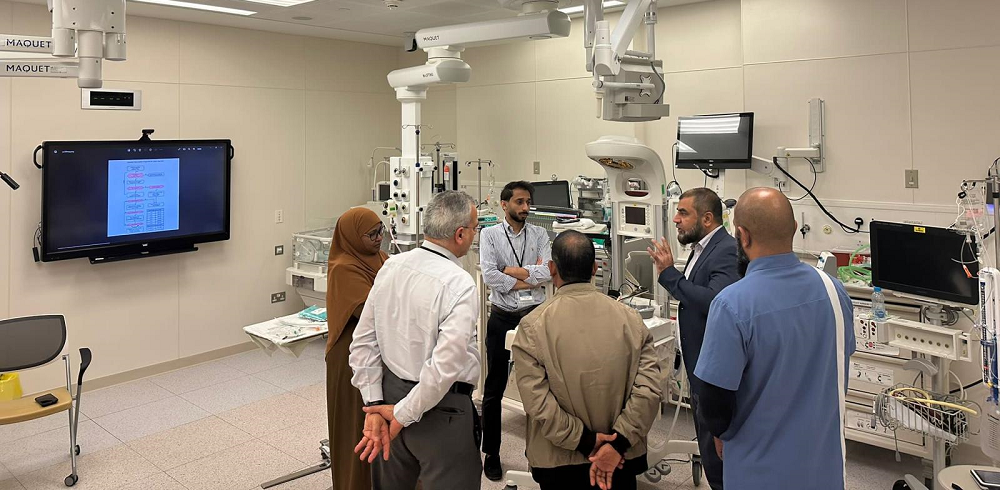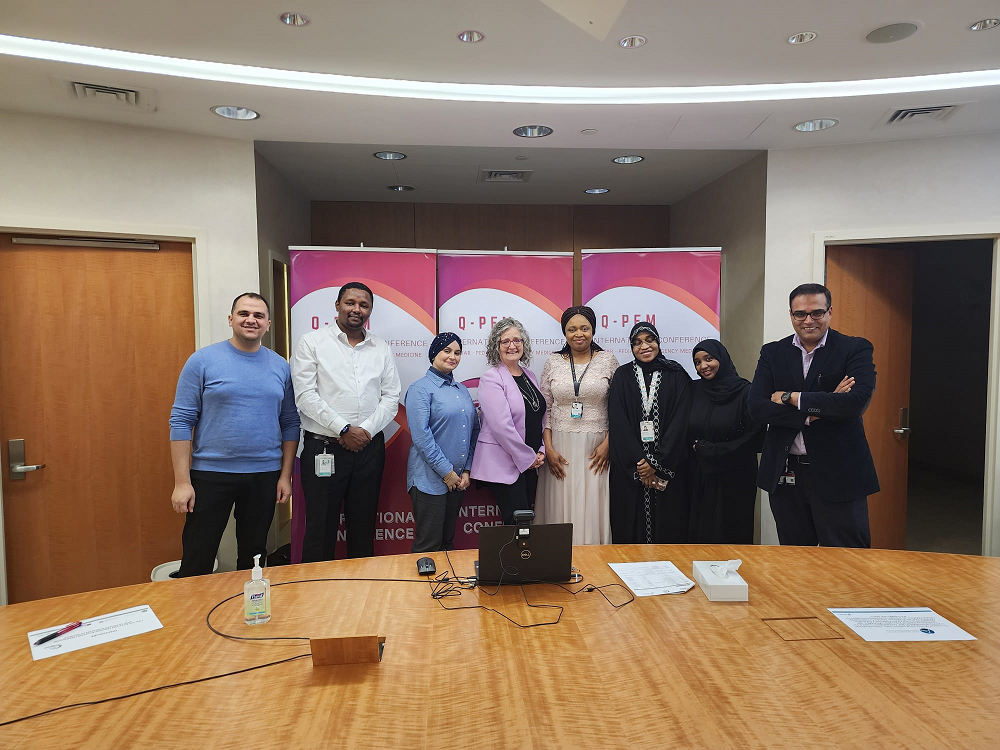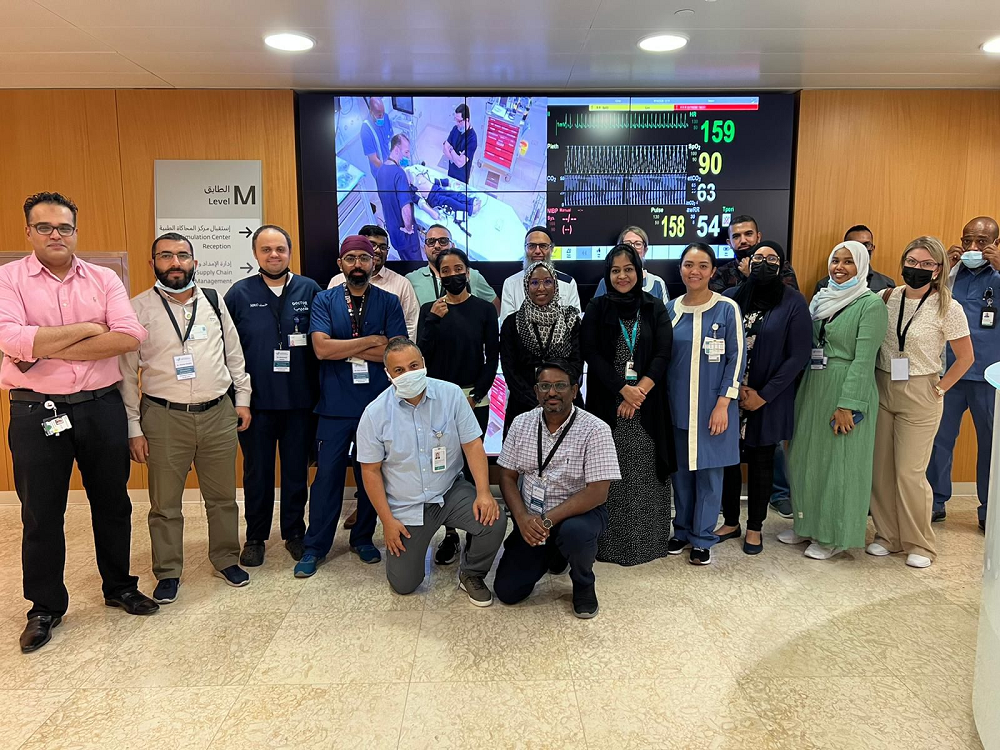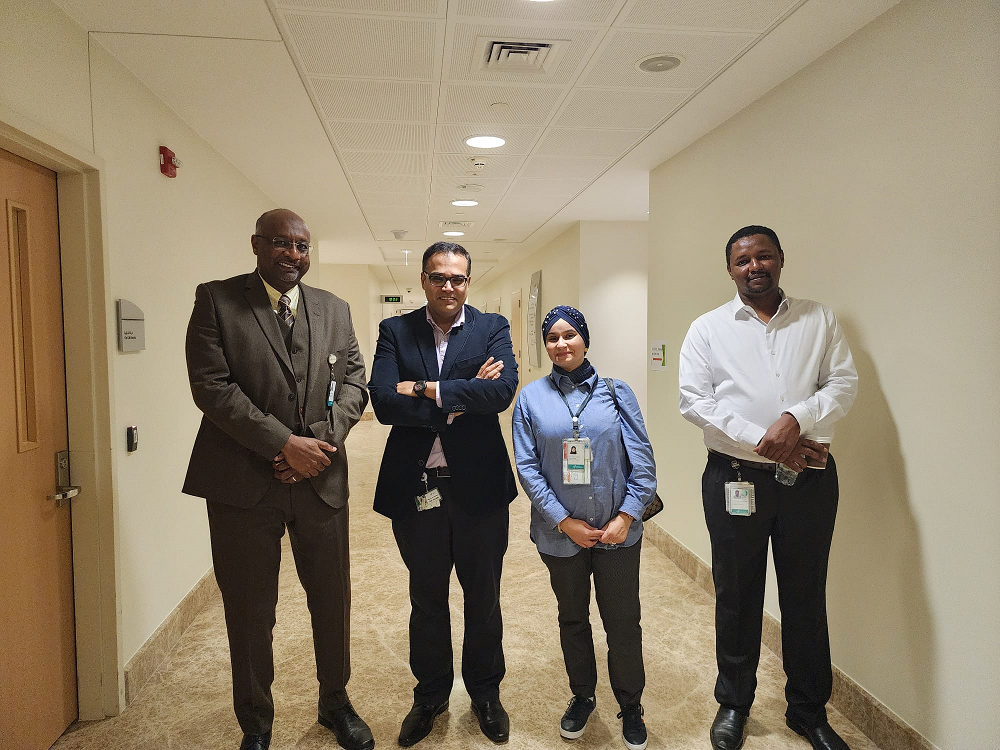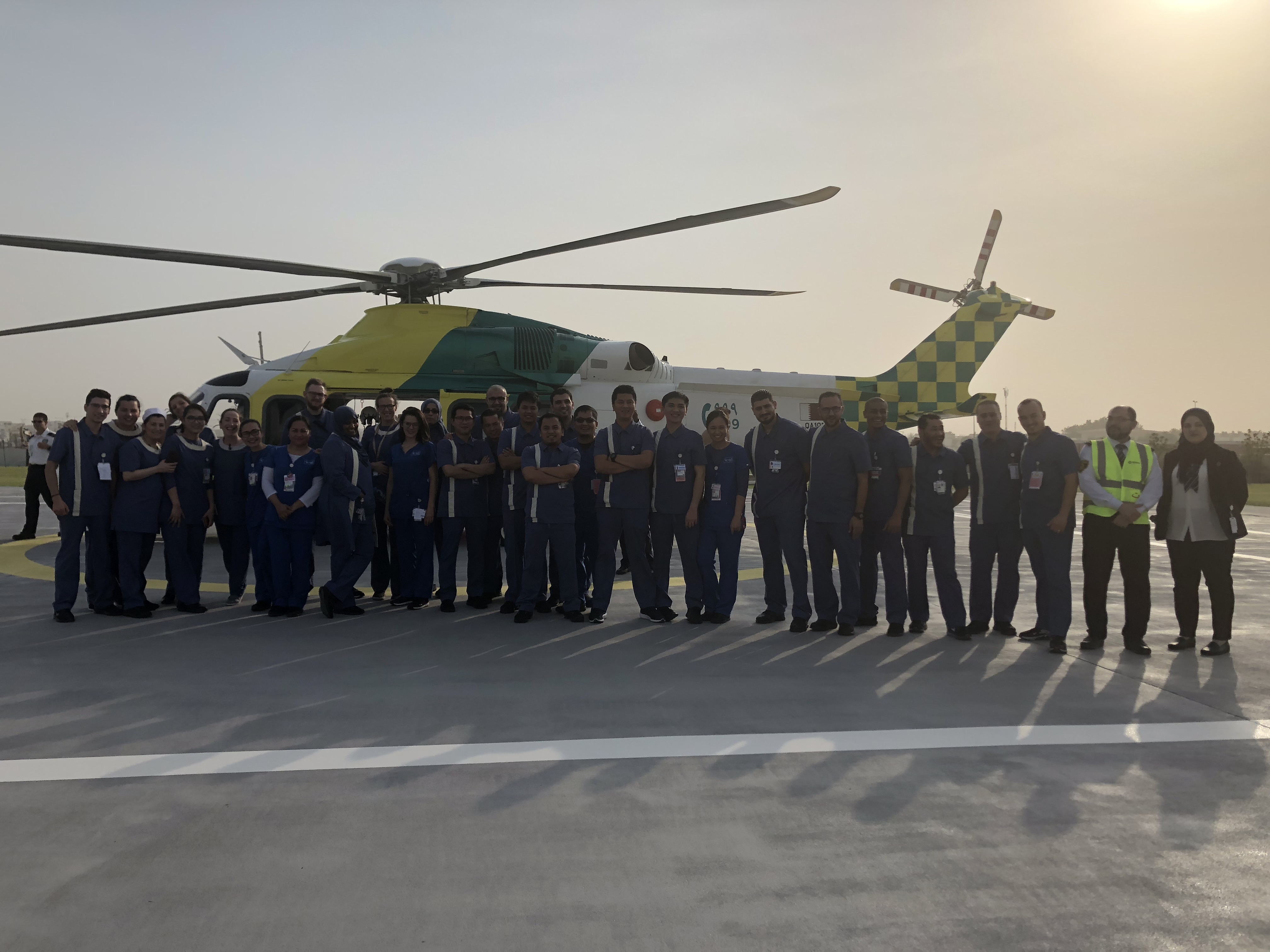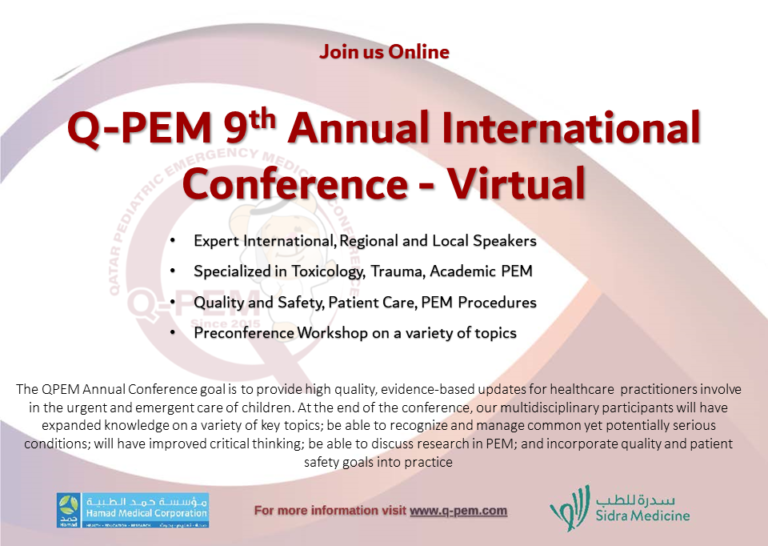QPEM 2025 PROGRAM
Day 1 Room 1 - Morning Plenary Sessions Speakers 07:30-07:45 Welcome and Introduction, Housekeeping, Site instructions/navigation Dr Syed Haris Huda Sidra Medicine 07:45-08:30 Future of Major Trauma Management in Pediatrics Dr Camilo Gutiérrez 08:30-09:15 “Imaging in Pediatric Neuro-Emergencies; The Good, The Bad and The Ugly” Dr Jehan Al Rayahi 09:15-09:30 (15 mins) Break 09:30-10:15 Bite Sized Evidence on Human and Animal Bites Dr Suha Turkmen Hamad Medical Corporation 10:15-11:00 Evaluating pediatric critical care competency: innovative approach to paramedic training Review factors that contribute in difficulty of retaining pediatric critical care skills Examine effective strategies and innovative approaches to improve the retention of critical care skills Mr Sulaiman Karickayil Sayed Mohammed 11:00-11:45 (45 mins) Top Articles of the year Dr Maher Najm 11:45-13:00 Lunch Day 1 Room 1 - Core PEM Track Session Speakers 13:00-13:45 Neonates that Make Your Heart Sink Dr Rafah Al Sayyed Hamad Medical Corporation 13:45-14:30 Resurgence of Vaccine Preventable Diseases Discuss the recent resurgence of vaccine preventable diseases Dr Andres Perez Lopez Microbiologist Sidra Medicine 14:30-15:15 Digital Media Influence on Youth Mental Health Dr Madeeha Kamal 15:15-15:30 (15 mins) Break 15:30-16:15 Sepsis: An Evidence Based Review Dr Bashir Yousef Hamad Medical Corporation 16:15-17:00 (45 mins) Case Based Analysis of Oncological Emergencies in the ED Describe subtle but sinister signs and symptoms of malignancies in ED Dr Sohail Ghani Sidra Medicine Day 1 Room 2 - Track Sessions- Academic Speakers 13:00-13:45 Motivation in Healthcare Settings Apply motivational theories to assess and enhance the intrinsic and extrinsic motivation factors among healthcare professionals in pediatric emergency settings Dr Syed Haris Huda 13:45-14:30 Drowning in Children: The Experience from Qatar Dr Ibtihal Abdelgadir 14:30-15:15 Journey of ACGME Accreditation of PEM Fellowship. From Scratch to Success Develop a strategic plan for establishing an ACGME-accredited Pediatric Emergency Medicine (PEM) fellowship program, including key steps, timelines, and resource allocation. Assess the effectiveness of various educational strategies in improving trainee outcomes and enhancing the overall quality of medical training programs. Dr Roona Aniapravan 15:15-15:30 (15 mins) Break 15:30-16:15 Medical Resuscitation Video Review Program: Taking Simulation Related Lessons to the Bedside Dr Jabeen Fayyaz (Canada) 16:15-17:00 Building a Research Program in Emergency Medicine Analyze the current landscape PEM research to identify gaps and opportunities for developing a robust research program Dr Junaid Razzak (United States) Day 1 Room 3 - Emergency Nursing Track Speakers 13:00-13:45 Keeping Patients Safe- Identification is Key Analyze patient safety data on consequences of missed identification Discuss strategies to help identify patients correctly Ms Sheryl Polly 13:45-14:30 Building bridges in multicultural Nursing: Effective precepting Describe the challenges of precepting nursing staff from various training and backgrounds Discuss strategies to encourage up skilling and teamwork Outline strategies to improve nursing skills and communication Ms Beverly Kaye Jo Mr Frankie Famillaran 14:30-15:15 Innovating Patient Flow in a Busy ED Discuss the use of Rapid Assessment and See and Treat models of care Describe how technology can assist in decreasing wait times in a busy ED Mr Sa’d Al- Merai Mr Mohammad Al-Rababah 15:15-15:30 (15 mins) Break 15:30-16:15 CAMHS Hotspots in the Pediatric ED Ms Ashley Cowan 16:15-17:00 The Deteriorating Patient- What Not to Miss Discuss the use of PEWS as a measure for identifying deterioration Apply strategies to avoid missing deterioration clinically Ms Melissa Hill Day 2 Room 1 - Morning Sessions Speakers 07:30-07:45 Welcome and Introduction, Housekeeping, Site instructions/navigation Dr Sohail Ghani 07:45-08:45 Fatigue and Burnout in Emergency Medicine Dr. Shari Platt 08:45-09:30 Suicidal Screening and the Pediatric ED Describe an evidence based approach to suicidal screening in the ED Dr Finza Latif 09:30-10:15 "The Digital Divide: Addressing Cyberbullying Among Young People". An ED Perspective Identify children at risk of or suffering from cyberbullying Describe strategies to manage and help children cope Dr Mohamed Al Breiki 10:15-10:30 (15 mins) Break 10:30-11:15 ‘Emotionally Safe Practices Impacting Patient and Family Satisfaction’ Ms. Mikki Ellen Huckett Child Life Specialist II 11:15-12:00 Pediatric ECGs: A Case Based Approach Evaluate ECGs and make diagnoses in a case-based approach Dr Gokul Erumbala 12:00-12:45 Lunch Day 2 Room 1 - Trauma Track Speakers 12:45-13:30 Abdominal Trauma Describe the epidemiology of abdominal trauma in children Evaluate the evidence behind imaging and describe risk stratification tools in abdominal injuries Dr Muhammad Islam 13:30-14:15 Spinal Trauma in Children Discuss the prevalence of spinal trauma in children Describe the consequences and neurological outcomes in spinal trauma Dr Ian Pople 14:15-15:00 Open fractures, management and updates 1. Describe the background clinical significance of open fracture. Dr Farhan Ali Sidra Medicine 15:00-15:15 (15 mins) Break 15:15-16:00 Trauma- The Sidra Experience Dr Guy Brisseau 16:00-16:45 Intricacies of Pediatric Burn Management Describe best evidence for front-line burn care Dr Susan Fraymovich Day 2 Room 2 - Child Protection Speakers 12:45-13:30 Recognizing Child Maltreatment in the ED Dr Nadeem Jilani 13:30-14:15 The Role of the Social Worker in Child Advocacy Programs Ms Joy Ademola 14:15-15:00 An Update on Abusive Head Trauma Discuss the various presentations of abusive head trauma in children Analyze red flags that identify possible non accidental trauma in infants and children Dr Suparna Dasgupta 15:00-15:15 (15 mins) Break 15:15-16:00 Child Protection in Conflict Zones Discuss the difficult challenges of identifying, managing and advocating for children of abuse in conflict zones Dr Naeem Zafar (Pakistan) 16:00-16:45 The Unexplained Death of a Child Discuss the various indications for involving a forensic pathologist in an unexplained death Describe the process for investigating such deaths Dr Nadeem Jilani Day 2 Room 3 - Toxicology Track Speakers 12:45-13:30 A Look at Chemical Weapons Discuss the risks and consequences of chemical weapons exposure in children Dr Yazeed Eldos 13:30-14:15 Biologic Weapons Dr Robert J Hoffman (United States) 14:15-15:00 The What, Who, Where, When, & Why of Poisonings in Qatar: A 5 year Retrospective Journey List top 3 substances involved in intentional exposures in Qatar Dr Leena Amine 15:00-15:15 (15 mins) Break 15:15-16:00 Cannaboids in Pediatrics 1. Explain the mechanism of toxicity of cannabinoids 2. Identify the appropriate diagnostic tests for cannabinoid toxicity 3. Discuss the management of cannabinoid toxicity Khadija Albarazanji 16:00-16:45 "Can One Pill Kill a Toddler?” Michael Mullins Day 3 Room 1 - PEM Market Place Speakers 07:45-08:00 Welcome and Introduction, Housekeeping, Site instructions/navigation Dr Sohail Ghani 08:00-11:00 PEM Market Place Discuss a range of evidence based topics designed to ensure quality and safety of patient care 08:00-08:15 To Err is Human and to be Safe is Devine – Learning from Medication Errors and Near Misses Maher Salem 08:15-08:30 Communication Hiccups Peri- Intubation Abirami Balasubramaniyan 08:30-08:45 Managing the crashing child: an EMS perspective Mr Nitesh Singh Hamad Medical Corporation 08:45-09:00 Intrahospital Transfer Pearls and Pitfalls Karine Khoder 09:00-09:15 Hand Hygiene- Bug Free Care! Dr Ahmad Al Shami 09:15-09:30 PEM Fellows Corner- Cases that will change your practice Dr Amani Hamid 09:30-09:45 Break 09:45-10:30 (45 min) Embracing Patient Safety Discuss the concept of Patient Safety in 2025 Highlight challenges for the ED environment Ms Aisha Mohammed 10:30-11:15 (45 min) Conflict Resolution - Breaking the silence in ED: Essential communication skills for resolving conflicts Detail triggers and features of escalating conflict Design an approach to manage conflict in the ED Dr Khalid Alyafei 11:15-12:00 (45 min) Communication as Key to ED Success Discuss issues with communication quality in a chaotic environment Analyze your communication style to ensure successfully team based interactions. Dr Barbara Blackie 12:00-12:45 (45 min) Effects of Multidisciplinary Team Work and Patient Flow Describe the features needed for successful team interactions that enhance flow Use examples to incorporate into multidisciplinary workflows Dr Omair Syed and Sidra Medicine 12:45-13:15 (30 min) QPEM Highlights: A Summary of Take-Home Points Dr. Nasser Haidar
(45 mins)
Discuss the key evidence-based management of pediatric trauma in 2025
(United States)
(45 mins)
1. Outline the CT and MR imaging technique used in the evaluation of pediatric patients with neuro-emergencies
2. Discuss the imaging findings of common neuro-emergencies using a case -based approach
3. Identify imaging red flags in emergency neuroimaging.
Sidra Medicine
(45mins)
Evaluate the latest evidence on managing animal and human bites
(45 mins)
Hamad Medical Corporation
Evaluate articles by analyzing the addressed question, methods, results and applicability
Decide which articles will change your practice and enhance your patient care
Hamad Medical Corporation
(45 mins)
Describe the signs and symptoms of neonatal cardiac conditions and implement the strategies to manage them in ED
(45 mins)
Describe the impact of such resurgence on the ED.
(45 mins)
Describe the consequences of active social media use in children and adolescent
Sidra Medicine
(45mins)
Discuss the latest evidence in the identification and management of pediatric sepsis
(45 mins)
Sidra Medicine
(45 mins)
Evaluate the effectiveness of current resuscitation and post-resuscitation care for pediatric drownings in Qatar and propose enhancements based on evidence-based practices
Sidra Medicine
(45 mins)
Sidra Medicine
(45mins)
Evaluate the effectiveness of medical resuscitation simulations by reviewing video recordings to identify areas of improvement and apply these insights to enhance bedside emergency practices
(45 mins)
Create a strategic plan that outlines the steps necessary to establish and sustain a successful PEM research program
(45 mins)
Sidra Medicine
(45 mins)
Sidra Medicine
(45 mins)
Sidra Medicine
(45mins)
Discuss the presentations and plans addressing mental health issues in the pediatric ED
Sidra Medicine
(45 mins)
Sidra Medicine
Sidra Medicine
(60 mins)
Develop strategies to identify and manage fatigue and burnout
(United States)
(45mins)
Sidra Medicine
(45 mins)
(Sultanate of Oman)
(45 mins)
This presentation will focus on emotional safety in staff/patient interventions and why it matters. Child Life will share practical interventions and behaviors that medical staff can integrate into their daily patient practice. These interventions will focus on age and developmentally appropriate strategies that support positive patient engagement and outcomes.
Child Life Services II
Sidra Medicine
Jen Lugg, MCDS, CCLS
Sidra Medicine
(45 mins)
(United Arab Emirates)
(45 mins)
Initial Assessment and Management
Sidra Medicine
(45 mins)
Sidra Medicine
(45 mins)
2. Discuss the classification of Open fractures.
3. Describe management and follow up rehabilitation of Open Fractures
(45mins)
1. Discuss the development of Trauma Programme at Multi trauma center
2. Evaluate the progress through the time
3. Describe the performance improvement and evaluation process
Sidra Medicine
(45 mins)
(United States)
(45 mins)
Discuss strategies and approaches to ensuring recognition of children who present with possible abuse
Sidra Medicine
(45 mins)
Discuss the multidisciplinary team role for social work in cases of non accidental trauma, neglect and emotional abuse.
Sidra Medicine
(45 mins)
(United Kingdom)
(45mins)
(45 mins)
Sidra Medicine
(45 mins)
Sidra Medicine
(45 mins)
Discuss the risks and consequences of biologic weapons exposure in children
(45 mins)
Identify top 5 pharmaceutical exposures in pediatrics in Qatar
Identify top 5 non-pharmaceutical exposures in pediatrics in Qatar
Sidra Medicine
(45mins)
Sidra Medicine
(45 mins)
1. Describe the methods used to generate lists of “one pill can kill” (1PCK)
2. Review evidence for or against drugs commonly appearing in 1PCK lists,
3. Compare these lists to the evidence about what actually kills small children,
4. Illustrate unintended iatrogenic consequence of 1PCK exposure using a published, real-world case
(United States)
Sidra Medicine
(120mins)
Sidra Medicine
Sidra Medicine
Sidra Medicine
Hamad Medical Corporation
Dr Amene Hermi
Dr Israa Abdelrasool
Sidra Medicine
Sidra Medicine
Sidra Medicine
(Canada)
Mr Andrew Jones
Summarize the key points that will change and/or enhance practice
Hamad Medical Corporation
17 - 19 January 2025
CONTACT US:

+974 4003 1025
![]()
Sidra Medicine
Plaza Level, Office PB 200
Al Luqta Street
Education City, North Campus, Qatar Foundation
Doha, Qatar
WHO SHOULD ATTEND?
The 9th Qatar - Pediatric Emergency Medicine (QPEM) International Virtual Conference 2025 is open to all healthcare professionals with an interest in or practice involving providing emergency and urgent care to children. The conference is CME accredited for nurses, doctors, allied health, paramedics, nurse practitioners and pharmacists, and all trainees welcome.
